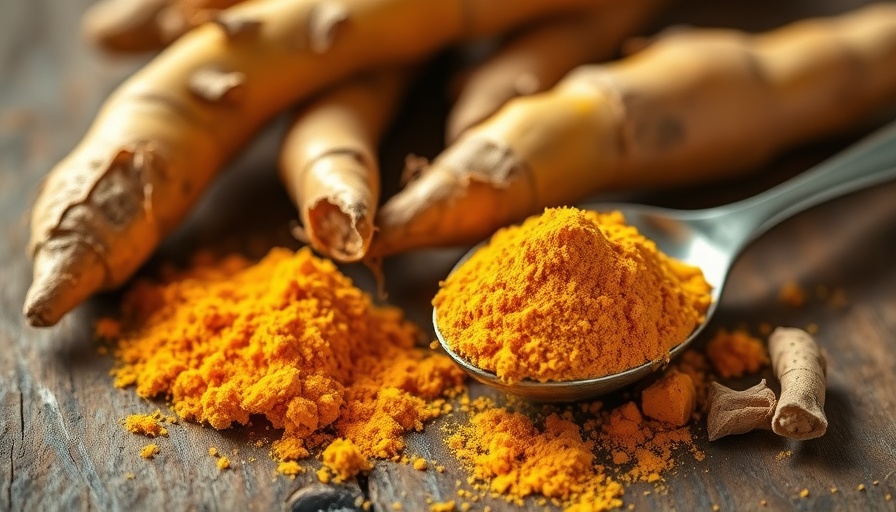
Unlocking the Power of Curcumin: What You Should Know
If you're a spice lover, you'll be pleased to learn that turmeric, a vibrant yellow spice widely used in curries and various dishes, comes with numerous health benefits, thanks primarily to its key active constituent—curcumin.
The Age-Defying Effects of Curcumin
Recent research indicates that curcumin may play an essential role in mitigating the effects of aging. As people age, conditions such as inflammation, cognitive decline, and muscle deterioration become more prevalent. Curcumin’s anti-inflammatory properties can help quell the inflammatory pathways associated with many age-related diseases, promoting not only longevity but also an improved quality of life.
Understanding Inflammation: A Modern Epidemic
Chronic inflammation has been linked to a variety of health disorders ranging from arthritis to cardiovascular diseases. By inhibiting inflammatory pathways in the body, curcumin’s impact on these conditions provides a compelling argument for its inclusion in daily diets. This natural anti-inflammatory can potentially reduce pain and discomfort while supporting overall health.
Curcumin and Cognitive Function: Protecting Your Mind
Among its many benefits, curcumin has been shown to enhance cognitive function. Neurodegeneration, commonly seen in older adults, can severely impair memory and everyday functioning. Studies indicate that curcumin may promote neuronal growth and connectivity in the brain, leading to sharper cognitive abilities and a lowered risk of neurodegenerative diseases such as Alzheimer’s. This protective effect on cognitive health emphasizes the importance of including curcumin-rich foods in our diets.
Boosting Muscle Health: The Curcumin Advantage
As we age, muscle mass naturally declines, a condition known as sarcopenia. Curcumin may not only support muscle health but also enhance physical performance. With its antioxidant properties, curcumin combats oxidative stress in muscle tissues, helping to preserve muscle strength and functionality. Integrating turmeric into meals could therefore foster better muscle development and strength retention, essential for leading a healthier life as we age.
How to Incorporate Curcumin into Your Diet
Adding curcumin to your diet can be as simple as sprinkling turmeric on roasted vegetables, mixing it into smoothies, or using it in soups and stews. Pairing it with black pepper can enhance absorption, thanks to piperine, a compound that significantly increases curcumin's bioavailability. As people seek natural ways to boost health, culinary incorporation of this spice offers a delicious method to gain its benefits.
Breaking Misconceptions: The Evidence Behind Curcumin
Despite its increasing popularity, misconceptions about curcumin persist. Some may believe that a long-term commitment is required to see benefits, while others may question its efficacy in daily doses. However, research suggests that even small amounts can be beneficial when consumed regularly. It's essential to seek out high-quality turmeric and curcumin supplements to maximize effectiveness.
Conclusion: Embracing Curcumin for Longevity
As science continues to explore the myriad benefits of curcumin, embracing this spice in daily diets can promote longer, healthier lives filled with vitality. Given the potential curcumin has to reduce inflammation, boost cognitive functions, and support muscle health, it’s an opportunity not to be overlooked. Discover ways to integrate turmeric into your meals and experience the difference it can make—this powerful spice could be your ally in achieving overall wellness.
 Add Row
Add Row  Add
Add 



 Add Row
Add Row  Add
Add 
Write A Comment